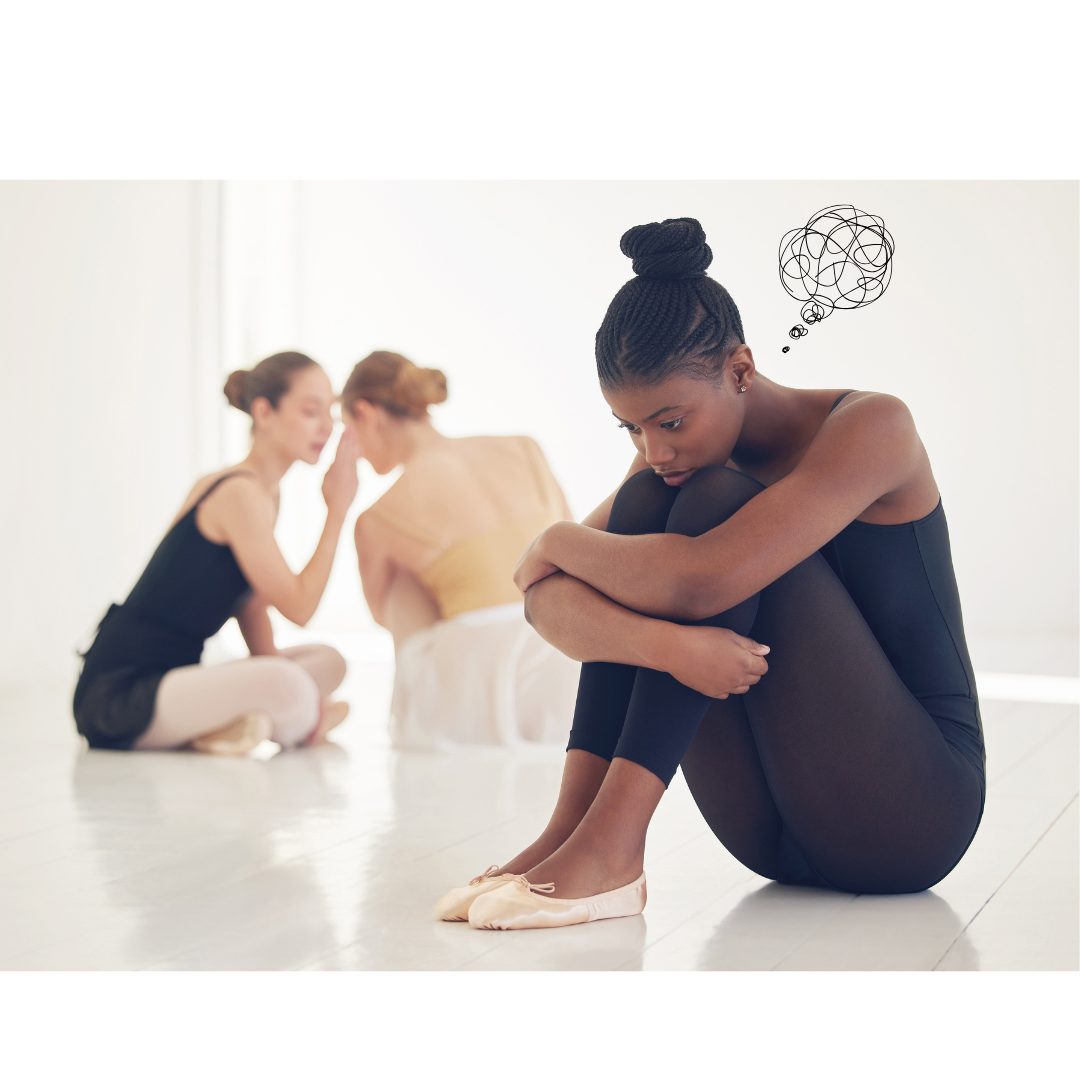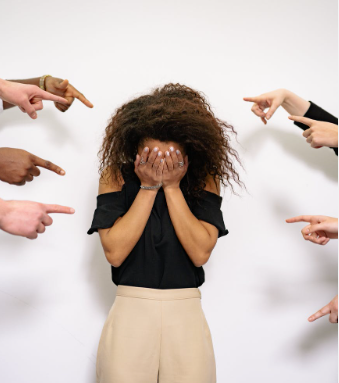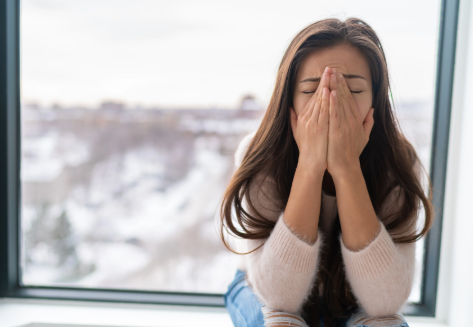Feeling Anxious Around People? Recognizing Signs of Social Anxiety

Have you ever felt super nervous about talking to people, maybe in class or at a party? That shaky feeling in your hands, butterflies in your stomach, or a blank mind—that’s what social anxiety can feel like. But social anxiety is more than just being shy; it’s more intense and can make daily life feel tough. So, let’s break down what social anxiety is, what social anxiety symptoms might look like, and ways to deal with social anxiety.
Social Anxiety 101
With social anxiety, you become extremely self-conscious and worry that others might judge or embarrass you. Imagine feeling like everyone’s watching you or waiting for you to mess up, even if you know deep down that’s probably not true. Those feelings can pop up anywhere—like during group work, family gatherings, or simply hanging out with friends.
This type of worry can make social interactions hard and impact many parts of your daily life. Some people experience social anxiety symptoms only occasionally, while others feel it almost every time they’re around people. Living with social anxiety can be challenging, but you’re not alone.
Signs You Might Have Social Anxiety
Wondering if you might be dealing with social anxiety? Here are some common symptoms that might give you a clue:
1. Overthinking Social Situations
Do you find yourself replaying conversations in your head, thinking about everything you could have said differently? This constant overthinking is one of the most common symptoms of social anxiety. People with social anxiety often find themselves analyzing every detail of their social interactions, even long after they’ve happened. This can make meeting new people or even casual social situations feel like a huge challenge.
2. Avoiding People or Events
If you skip events or ignore calls because they feel too stressful, social anxiety might be making you avoid social situations. Avoidance is one of the main ways people with social anxiety try to cope, but it can make you feel isolated and disconnected over time. Missing out on social interactions, like family gatherings or group activities, can take a toll on your relationships and make daily life feel even more stressful.
3. Fear of Judgment or Embarrassment
People with social anxiety often worry about saying the wrong thing, making mistakes, or being laughed at. It’s that constant feeling that others are judging you or waiting for you to mess up. This fear can cause you to avoid situations where you might feel “on the spot” or pressured to speak.
4. Physical Symptoms
Social anxiety doesn’t just live in your head—it can show up in your body too. You might feel your heart rate increase, start to sweat, or get shaky around others. These physical symptoms can make it even harder to stay calm, especially if you’re already nervous. These responses are your body’s way of reacting to perceived “danger,” even if the danger is just an awkward conversation or an uncomfortable social interaction.
5. Fear of Attention
Being the center of attention can be terrifying for people with social anxiety. Situations where all eyes are on you—like answering a question in class or giving a presentation—can feel overwhelming. Instead of wanting recognition, you’d rather go unnoticed and avoid social situations where you might be the focus.
Why Do Some People Get Social Anxiety?
Social anxiety can develop for various reasons, and everyone’s story is different. For some people, past experiences can be a big influence. If you’ve been criticized a lot or felt awkward in social situations, you might start to feel anxious about being around others. When you’ve been teased or embarrassed, it’s easy to worry it’ll happen again. These experiences can act as risk factors, making you more sensitive to social anxiety.
Family background and personality traits can also play a role. Being naturally shy or quiet doesn’t cause social anxiety, but it can make some people more likely to feel anxious in social situations. Sometimes, people with social anxiety feel anxious even in safe situations, worrying that their interactions could go wrong.
It’s important to remember that social anxiety isn’t just “being shy.” It’s a mental health condition that affects many people, and there are treatments for social anxiety that can help. If you have social anxiety, you’re not alone, and with the right support, you can find ways to feel more comfortable in social situations.
How Social Anxiety Can Impact Your Life
Living with social anxiety can feel like being trapped in a cage where your thoughts and worries hold you back. People with social anxiety might miss out on fun events, avoid meeting new people, or even feel disconnected from friends and family. Everyday things, like talking in class or attending a party, can feel impossible. Social anxiety can also affect your self-esteem and make you feel limited in what you can achieve.
Social anxiety symptoms can make it hard to focus because your mind is constantly worrying about what others think of you. The pressure to appear “normal” can add extra stress and make you want to avoid social situations entirely. This mental health condition can affect your daily life in big ways, but the good news is there are ways to deal with social anxiety.
Ways to Deal with Social Anxiety
If social anxiety is making life difficult, here are some approaches that might help:
1. Talk Therapy and Professional Support
Talking to a mental health professional can be one of the best ways to get help. Through talk therapy, you can learn techniques for managing social anxiety symptoms and explore what triggers your anxiety. A therapist can also help you build social skills and suggest personalized treatments for social anxiety, giving you tools to face awkward social situations with more confidence.
2. Support Groups
Support groups provide a safe space for people with social anxiety to connect and share their experiences. In a group setting, you can learn new ways to cope, hear about other people’s journeys, and build a sense of community. Support groups can make dealing with social anxiety feel less isolating and help you feel understood.
3. Breathing and Relaxation Techniques
Physical symptoms, like a racing heart or shaky feeling, can make social anxiety feel worse. Practicing deep breathing and relaxation techniques can help calm your body’s response in stressful moments. These techniques are especially helpful when you’re in a social situation that makes you feel anxious, like meeting new people or being in a crowded room.
4. Exposure Therapy
One of the most effective treatments for social anxiety is exposure therapy. This approach involves gradually exposing yourself to situations that make you feel anxious. Start with short-term, small challenges and work your way up. Over time, facing your fears in a controlled way can help you feel less anxious and more comfortable in daily life.
5. Practicing Positive Self-Talk
Changing how you talk to yourself can make a big difference. Instead of thinking, “I’ll mess this up,” try telling yourself, “It’s okay to feel nervous.” Remind yourself that it’s normal to feel anxious sometimes and that these feelings will pass. Positive self-talk can help you manage social anxiety symptoms and feel more in control during social interactions.
Finding Relief with icalm
If you’re looking for a natural way to calm social anxiety, icalm might be a great fit. It’s a stress relief shot that’s stimulant-free, so it won’t make you jittery. iCalm contains natural ingredients like magnesium glycinate, L-theanine, and Rhodiola Rosea—all known for promoting relaxation and easing anxiety symptoms. Just take it before an event that makes you feel anxious—like a family gathering, school dance, or sports game. icalm can help you feel steady when social anxiety symptoms start to creep in.
Final Thoughts
Living with social anxiety isn’t easy, but it doesn’t have to define who you are. You’re capable of being brave, connecting with others, and making meaningful social interactions. With support from mental health professionals, friends, and family, you can find ways to feel more comfortable in social situations. And remember, if you need a little extra support, icalm is here to help you face your fears head-on.
With love,
Michelle,
Co-Founder of icalm Health









Leave a comment